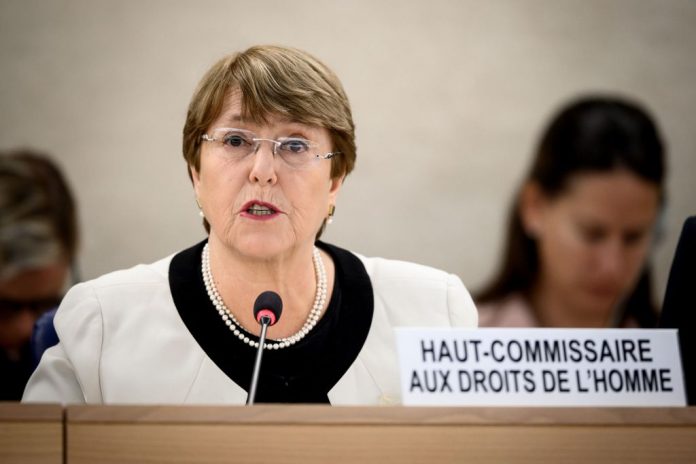By Kwamchetsi Makokha and Susan Kendi
Burundi has kicked out of the country the UN agency responsible for bringing human rights violations to world attention in a move that could severely hamper investigations into alleged crimes against humanity.
Although the government had asked that the Office of the High Commissioner for Human Rights shut its doors in December 2018, negotiations to review the decision collapsed after the shutdown order was issued on March 4, 2019.
The UN office provided political cover for UN Independent Investigation in Burundi (UNIIB), created by the UN Human Rights Council, which has been gathering information and documents human rights violations and abuses committed in the country since April 2015. UNIIB established that the violations that had occurred in the country warranted investigation by the International Criminal Court (ICC).
On September 30, 2016, the UN Human Rights Council established the Commission of Inquiry on Burundi to investigate violations and abuses committed since 2015.
Each year, since its establishment, the UN has renewed the commission’s mandate even as it receives reports on the deteriorating human rights situation in Burundi. The UN office in Burundi was the focal point for investigations, even though members of the Commission of Inquiry have been unable to carry out investigations in the country citing security fears.
In the UN’s most recent report, it concludes that human rights violations documented in the first years of commission’s mandate had persisted through 2017 and 2018 and that the perpetrators of the crimes were still operating in a climate of impunity. Police and national intelligence services were the most implicated entities in the violation of human rights but the pro-government Imbonerakure militia was playing an increasingly important role as recruitment drives among the general public were employed as a means of suppressing all opposition.
Civil society organisation Acat-Burundi announced in a statement on its website that it deplored the step to close down the UN office while praising the office’s work and collaborative spirit in the past 23 years.
“It is important to remember that this office has been beneficial in the monitoring of human rights violations, the production of rights status reports, advocacy and capacity building of different actors including government officials,” Acat-Burundi added.
The violence that has characterised the political crisis in Burundi since Pierre Nkurunziza decided to seek a third term as President in 2015 has already claimed more than 2,000 lives, seen approximately 7,000 people detained and 400,000 refugees go into exile even as space for freedom of expression closes at home.
Burundi’s government had accused the UN agency and other organisations of being “enemies of the country and tarnishing the image of Burundi”.
The UN office’s activities had slowed down since October 2016 after the suspension of formal collaboration with the government. It was also in this period that Burundi decided to withdraw from the Rome Statute. The government crackdown on civil society organisations active in denouncing human rights violations has forced their leaders into exile and others to work underground in response to the threats they face.
Since 2015, violence has escalated, each year becoming more systematic but difficult to trace. Accountability mechanisms are weak, thus making it possible for cycles of violence to continue.
The UN has previously recommended that the authorities put into place measures to improve the human rights situation, including releasing political prisoners, reconsidering the decision to withdraw from the Rome Statute and fully cooperating with the ICC, lifting the suspension and revoked licences for media and civil society, withdrawing arrest warrants for heads of media outlets, civil society organisations and political parties, and allowing their return to Burundi and to allow the United Nations High Commissioner for Human Rights to resume its documentation on the abuses in Burundi as well as sign and implement the memorandum of understanding with the AU to permit the full deployment of 100 human rights observers and 100 military experts as decided in 2016.
The UN also wanted the government to immediately end gross human rights violations and, with the support of international community, establish ad hoc mechanisms to investigate human rights violations and to prosecute perpetrators of international crimes that are not being investigated by the ICC, while also setting up an independent body to investigate cases of disappearance reported since April 2015, locate potential mass graves, and exhume and identify the remains.
For the past three years, the commission has also urged that its recommendations be sent to the United Nations Security Council. It asked the UN Security Council to take into account its conclusions and refer any international crimes that may have been committed in Burundi after October 27, 2017 to the ICC.
It was recommended that the member states of the UN maintain individual sanctions and the suspension of direct aid to the government in case there is no improvement, prosecute alleged perpetrators of international crimes committed in Burundi with relevance to the universal jurisdiction, provide technical assistance that enables the Burundian authorities to conduct credible and independent investigations.
The African Union and the UN have been urged to phase out the use of Burundian troops in peacekeeping operations while the crisis continues. The AU has been urged to take lead in finding a lasting solution to the Burundi crisis and ensure that perpetrators of political violence do not take part in AU peacekeeping missions.







